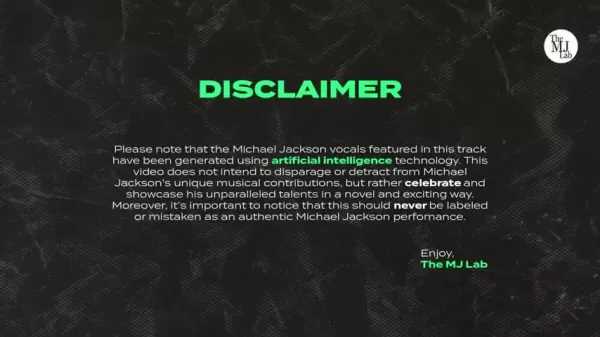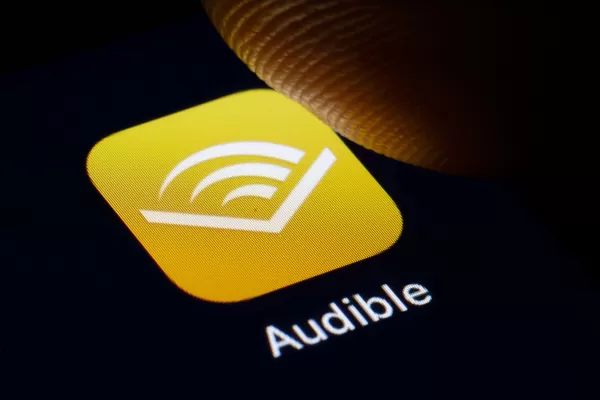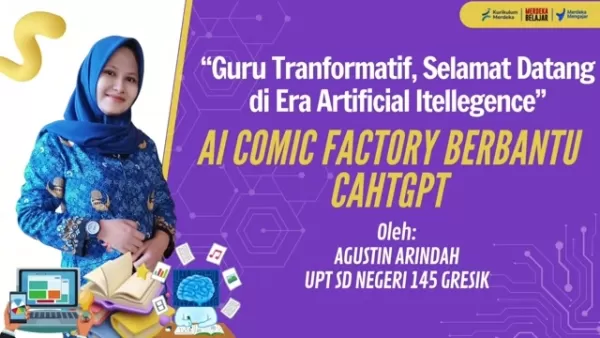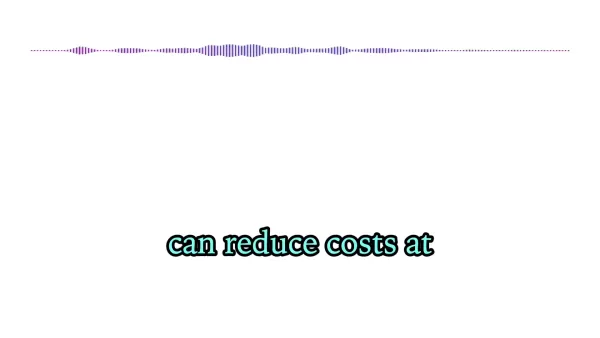AI-Powered Music Creation: Exploring Britney Spears and Michael Jackson's "Circus"
The music industry is undergoing a transformative shift, with artificial intelligence (AI) driving innovation in music creation. From crafting vocals to composing full tracks, AI is redefining artistic possibilities. This blog explores AI-generated music through a creative lens, spotlighting a unique project featuring Britney Spears and an AI-reimagined Michael Jackson. We’ll delve into the technology’s potential, its challenges, and the ethical questions it raises, all centered around an engaging, imaginative track.
Key Highlights
AI is revolutionizing music by generating vocals and complete tracks.
A video showcases AI-crafted Michael Jackson vocals in a Britney Spears song.
AI-generated music prompts debates about authenticity and creative intent.
The goal is to champion innovation, not replace human artistry.
Clear labeling of AI-generated music is essential for transparency.
The Emergence of AI in Music
Understanding AI-Generated Music
AI-generated music involves compositions or performances created with artificial intelligence. This spans techniques like generating melodies, harmonies, or even replicating the voices of well-known artists. Recent advancements have enabled AI to produce compelling music that challenges conventional ideas of creativity and authorship.
AI systems are trained on extensive music datasets, learning patterns, genres, and structures. Once trained, they can produce original compositions with remarkable creativity. Though still evolving, this technology offers vast potential to transform the music industry. AI tools can now:
- Create original pieces across diverse genres
- Support composers with intricate arrangements
- Offer tailored music recommendations
- Replicate the vocal styles of established artists
Yet, AI’s role in music sparks critical discussions about copyright, intellectual property, and the essence of human creativity. As AI advances, these issues demand careful attention to ensure fairness and sustainability in the industry. Disclaimers are vital when using AI-generated vocals to maintain transparency.

.
How AI is Reshaping the Music Industry
AI’s influence on music extends beyond creation, transforming production, distribution, and consumption. Here’s how AI is making an impact:
Music Composition: AI assists composers by suggesting melodies, harmonies, and rhythms. Tools like Amper Music and Jukebox enable users to craft tracks based on specific styles or parameters.
Music Production: AI enhances mixing, mastering, and audio quality. Plugins like iZotope Ozone analyze tracks and recommend settings for professional-grade sound.
Personalized Recommendations: Platforms like Spotify and Apple Music leverage AI to analyze listening habits, curating personalized playlists and boosting music discovery.
Music Discovery: AI identifies emerging artists and trends, aiding record labels in spotting new talent.
Vocal Synthesis: AI can emulate artists’ voices, enabling creative remixes but raising ethical concerns about unauthorized use.
Music Education: AI tools offer tailored feedback to students, enhancing skill development.
As AI technology evolves, its applications will continue to reshape how music is created, shared, and experienced.
Spotlight on "Circus": An AI-Driven Collaboration
A Creative Fusion
The "Circus" track, blending AI-generated Michael Jackson vocals with Britney Spears, showcases a bold experiment in music creation. This project doesn’t aim to replace either artist but explores AI’s creative potential. It imagines a collaboration between two music icons, using technology to craft something fresh and exciting.
This endeavor highlights the synergy of artistry and technology, letting listeners envision a unique partnership without altering original recordings. The focus is on celebrating both artists’ talents and demonstrating AI’s role in expanding musical creativity. Responsible execution, including clear disclaimers, ensures transparency and respects the artists’ legacies.

.
Recreating Michael Jackson’s Vocals with AI
Replicating an artist’s vocals via AI is a sophisticated process. A machine learning model is trained on a broad dataset of the artist’s recordings, capturing nuances in tone, pitch, and style. The more robust the dataset, the more authentic the AI vocals. The model then generates new performances based on inputs like melody or lyrics.
The quality of AI vocals hinges on:
- The depth and quality of training data
- The AI model’s complexity
- The skill of engineers refining the output
While AI vocals are improving, they may still lack the emotional depth of live performances. However, ongoing advancements are narrowing this gap, offering:
- New ways to remix or reimagine tracks
- Creative tools for artists and producers
- Possibilities for unprecedented collaborations
The Result: "Circus" with AI-Generated Michael Jackson
The "Circus" track, featuring AI-crafted Michael Jackson vocals, exemplifies AI’s potential in music. While not a genuine collaboration, it offers a captivating glimpse of what such a partnership could produce. The track blends Britney Spears’ pop flair with Michael Jackson’s iconic vocal style, backed by high-quality production and clear AI disclaimers.
Key elements include:
- Vibrant melodies and dynamic rhythms
- A fusion of Spears’ pop energy and Jackson’s vocal signature
- Top-tier production quality
- Transparent AI usage disclosures
Critics may question the authenticity of AI-generated music or its impact on artists’ legacies. Yet, these projects aim to innovate, not deceive. By addressing ethical concerns and ensuring transparency, AI can create meaningful, inspiring musical experiences that enhance human creativity.
Creating Music with AI Tools
A Guide to AI Music Creation
AI music tools are increasingly accessible, even for beginners. Here’s how to start:
Select an AI Platform: Choose a platform like Amper Music, Jukebox, or Soundful based on your needs and customization preferences.
Set Music Parameters: Define genre, tempo, mood, or length to shape the AI’s output.
Generate the Track: Preview the AI-generated music and tweak as needed.
Customize the Output: Adjust notes, instruments, or effects to personalize the track.
Export the Music: Save your creation in formats like MP3 or WAV for use in projects.
Tips for Quality AI Music:
- Explore various genres and moods
- Use precise input parameters
- Add personal touches through customization
- Review copyright and licensing for commercial use
With creativity and experimentation, AI tools can produce unique music for diverse projects.
AI Music Platform Costs
What to Expect from Pricing
AI music platform pricing varies based on features, customization, and usage. Common pricing models include:
Free Plans: Limited features, often with watermarks or restrictions on commercial use.
Basic Plans: Ideal for personal projects, offering extended track lengths and watermark removal ($10–$30/month).
Pro Plans: Designed for professionals, with full features and commercial licensing ($50–$150/month).
Enterprise Plans: Customized for businesses, with tailored features and pricing negotiated individually.
Factors Influencing Costs:
- Feature set and customization options
- Commercial vs. personal licensing
- Audio quality of exports
Evaluate your needs and budget to select a plan that delivers the best value. Always include disclaimers for compliance.
Pros and Cons of AI-Generated Music
Advantages
Cost-effective music creation
Rapid production of large music volumes
Versatile across genres
Personalized creative experiences
Challenges
Limited creative originality
Ethical concerns with AI vocals
Lack of emotional depth
Requires extensive data for quality
Core Features of AI Music Platforms
Key Tools for Music Creation
AI music platforms offer features to streamline music production:
Genre Selection: Choose from pop, rock, electronic, or classical to suit your project.
Mood and Emotion Settings: Adjust to create music that evokes specific feelings.
Tempo and Key Customization: Tailor tracks to match other media.
Instrument Options: Select from diverse instruments for varied arrangements.
Arrangement Control: Add intros, outros, or variations for structure.
Editing Tools: Fine-tune notes, effects, or arrangements for personalized results.
Licensing Options: Choose licenses for commercial or personal use.
These features empower users to create high-quality music tailored to their needs.
Applications of AI-Generated Music
Versatile Use Cases
AI music is transforming content creation across industries:
Social Media: Affordable background music for YouTube, Instagram, or TikTok content.
Advertising: Custom soundtracks to boost brand engagement.
Video Games: Dynamic, adaptive music for immersive experiences.
Podcasts: Professional intros, outros, and background tracks.
Film and TV: Cost-effective custom soundtracks for productions.
Education: Engaging music for online courses or training.
Wellness: Relaxing music for therapy and stress relief.
AI music’s affordability and flexibility make it a game-changer for creative industries.
Frequently Asked Questions (FAQ)
Is AI-generated music truly original?
AI music can be novel, but it draws from patterns learned from existing datasets. While it creates new combinations, its originality depends on how far it diverges from training data. The focus is on fostering innovation, not replicating existing works.
Are there copyright concerns with AI music?
Copyright for AI music is complex. Purely AI-generated tracks may not qualify for copyright without human input. However, human contributions like parameter setting or editing may make the work copyrightable. Always review platform licensing and use disclaimers for commercial projects.
Can AI replace human musicians?
AI is unlikely to fully replace musicians. It excels at technical tasks but lacks the emotional depth and spontaneity of human artistry. AI serves best as a creative tool, supporting musicians by automating tasks and sparking inspiration.
Related Questions
What ethical issues arise from mimicking famous singers with AI?
Using AI to replicate artists’ voices raises concerns about unauthorized use and listener deception. Transparency through clear disclaimers is critical to clarify that vocals are AI-generated, respecting artists’ legacies. Artists should have control over their likeness, requiring ethical guidelines to balance innovation and rights.
What are the top AI music platforms available?
Leading AI music platforms include:
Amper Music: Custom music for videos and podcasts with flexible genres.
Jukebox: Generates original tracks and realistic vocals, developed by OpenAI.
Soundful: Royalty-free music for background tracks.
Ecrett Music: User-friendly with pre-made templates.
AIVA: Emotional soundtracks for films and games.
Choose a platform based on your project needs and budget, experimenting to find the best fit. Here’s a comparison:
Platform | Key Features | Pricing
Amper Music | Custom music for media | Subscription-based
Jukebox | Original tracks, realistic vocals | Free with OpenAI API
Soundful | Royalty-free music | Subscription-based
Ecrett Music | Simple interface, templates | Subscription-based
AIVA | Emotional soundtracks | Subscription-based
Related article
 Audible Boosts AI-Narrated Audiobook Offerings with New Publisher Partnerships
Audible, Amazon’s audiobook platform, revealed on Tuesday a collaboration with select publishers to transform print and e-books into AI-narrated audiobooks. This move is designed to rapidly grow its l
Audible Boosts AI-Narrated Audiobook Offerings with New Publisher Partnerships
Audible, Amazon’s audiobook platform, revealed on Tuesday a collaboration with select publishers to transform print and e-books into AI-narrated audiobooks. This move is designed to rapidly grow its l
 AI Comic Factory: Revolutionizing Education with Creative AI Tools
In today's dynamic educational landscape, educators are continually exploring innovative ways to captivate students and spark creativity. The integration of Artificial Intelligence (AI) into education
AI Comic Factory: Revolutionizing Education with Creative AI Tools
In today's dynamic educational landscape, educators are continually exploring innovative ways to captivate students and spark creativity. The integration of Artificial Intelligence (AI) into education
 AI-Powered Nail Salon Efficiency: Boost Operations and Growth
In the dynamic world of business, optimizing operations and elevating customer satisfaction are key to success. Nail salons, such as Tamashi Nail Salon, are turning to innovative solutions to enhance
Comments (0)
0/200
AI-Powered Nail Salon Efficiency: Boost Operations and Growth
In the dynamic world of business, optimizing operations and elevating customer satisfaction are key to success. Nail salons, such as Tamashi Nail Salon, are turning to innovative solutions to enhance
Comments (0)
0/200
The music industry is undergoing a transformative shift, with artificial intelligence (AI) driving innovation in music creation. From crafting vocals to composing full tracks, AI is redefining artistic possibilities. This blog explores AI-generated music through a creative lens, spotlighting a unique project featuring Britney Spears and an AI-reimagined Michael Jackson. We’ll delve into the technology’s potential, its challenges, and the ethical questions it raises, all centered around an engaging, imaginative track.
Key Highlights
AI is revolutionizing music by generating vocals and complete tracks.
A video showcases AI-crafted Michael Jackson vocals in a Britney Spears song.
AI-generated music prompts debates about authenticity and creative intent.
The goal is to champion innovation, not replace human artistry.
Clear labeling of AI-generated music is essential for transparency.
The Emergence of AI in Music
Understanding AI-Generated Music
AI-generated music involves compositions or performances created with artificial intelligence. This spans techniques like generating melodies, harmonies, or even replicating the voices of well-known artists. Recent advancements have enabled AI to produce compelling music that challenges conventional ideas of creativity and authorship.
AI systems are trained on extensive music datasets, learning patterns, genres, and structures. Once trained, they can produce original compositions with remarkable creativity. Though still evolving, this technology offers vast potential to transform the music industry. AI tools can now:
- Create original pieces across diverse genres
- Support composers with intricate arrangements
- Offer tailored music recommendations
- Replicate the vocal styles of established artists
Yet, AI’s role in music sparks critical discussions about copyright, intellectual property, and the essence of human creativity. As AI advances, these issues demand careful attention to ensure fairness and sustainability in the industry. Disclaimers are vital when using AI-generated vocals to maintain transparency.

.
How AI is Reshaping the Music Industry
AI’s influence on music extends beyond creation, transforming production, distribution, and consumption. Here’s how AI is making an impact:
Music Composition: AI assists composers by suggesting melodies, harmonies, and rhythms. Tools like Amper Music and Jukebox enable users to craft tracks based on specific styles or parameters.
Music Production: AI enhances mixing, mastering, and audio quality. Plugins like iZotope Ozone analyze tracks and recommend settings for professional-grade sound.
Personalized Recommendations: Platforms like Spotify and Apple Music leverage AI to analyze listening habits, curating personalized playlists and boosting music discovery.
Music Discovery: AI identifies emerging artists and trends, aiding record labels in spotting new talent.
Vocal Synthesis: AI can emulate artists’ voices, enabling creative remixes but raising ethical concerns about unauthorized use.
Music Education: AI tools offer tailored feedback to students, enhancing skill development.
As AI technology evolves, its applications will continue to reshape how music is created, shared, and experienced.
Spotlight on "Circus": An AI-Driven Collaboration
A Creative Fusion
The "Circus" track, blending AI-generated Michael Jackson vocals with Britney Spears, showcases a bold experiment in music creation. This project doesn’t aim to replace either artist but explores AI’s creative potential. It imagines a collaboration between two music icons, using technology to craft something fresh and exciting.
This endeavor highlights the synergy of artistry and technology, letting listeners envision a unique partnership without altering original recordings. The focus is on celebrating both artists’ talents and demonstrating AI’s role in expanding musical creativity. Responsible execution, including clear disclaimers, ensures transparency and respects the artists’ legacies.

.
Recreating Michael Jackson’s Vocals with AI
Replicating an artist’s vocals via AI is a sophisticated process. A machine learning model is trained on a broad dataset of the artist’s recordings, capturing nuances in tone, pitch, and style. The more robust the dataset, the more authentic the AI vocals. The model then generates new performances based on inputs like melody or lyrics.
The quality of AI vocals hinges on:
- The depth and quality of training data
- The AI model’s complexity
- The skill of engineers refining the output
While AI vocals are improving, they may still lack the emotional depth of live performances. However, ongoing advancements are narrowing this gap, offering:
- New ways to remix or reimagine tracks
- Creative tools for artists and producers
- Possibilities for unprecedented collaborations
The Result: "Circus" with AI-Generated Michael Jackson
The "Circus" track, featuring AI-crafted Michael Jackson vocals, exemplifies AI’s potential in music. While not a genuine collaboration, it offers a captivating glimpse of what such a partnership could produce. The track blends Britney Spears’ pop flair with Michael Jackson’s iconic vocal style, backed by high-quality production and clear AI disclaimers.
Key elements include:
- Vibrant melodies and dynamic rhythms
- A fusion of Spears’ pop energy and Jackson’s vocal signature
- Top-tier production quality
- Transparent AI usage disclosures
Critics may question the authenticity of AI-generated music or its impact on artists’ legacies. Yet, these projects aim to innovate, not deceive. By addressing ethical concerns and ensuring transparency, AI can create meaningful, inspiring musical experiences that enhance human creativity.
Creating Music with AI Tools
A Guide to AI Music Creation
AI music tools are increasingly accessible, even for beginners. Here’s how to start:
Select an AI Platform: Choose a platform like Amper Music, Jukebox, or Soundful based on your needs and customization preferences.
Set Music Parameters: Define genre, tempo, mood, or length to shape the AI’s output.
Generate the Track: Preview the AI-generated music and tweak as needed.
Customize the Output: Adjust notes, instruments, or effects to personalize the track.
Export the Music: Save your creation in formats like MP3 or WAV for use in projects.
Tips for Quality AI Music:
- Explore various genres and moods
- Use precise input parameters
- Add personal touches through customization
- Review copyright and licensing for commercial use
With creativity and experimentation, AI tools can produce unique music for diverse projects.
AI Music Platform Costs
What to Expect from Pricing
AI music platform pricing varies based on features, customization, and usage. Common pricing models include:
Free Plans: Limited features, often with watermarks or restrictions on commercial use.
Basic Plans: Ideal for personal projects, offering extended track lengths and watermark removal ($10–$30/month).
Pro Plans: Designed for professionals, with full features and commercial licensing ($50–$150/month).
Enterprise Plans: Customized for businesses, with tailored features and pricing negotiated individually.
Factors Influencing Costs:
- Feature set and customization options
- Commercial vs. personal licensing
- Audio quality of exports
Evaluate your needs and budget to select a plan that delivers the best value. Always include disclaimers for compliance.
Pros and Cons of AI-Generated Music
Advantages
Cost-effective music creation
Rapid production of large music volumes
Versatile across genres
Personalized creative experiences
Challenges
Limited creative originality
Ethical concerns with AI vocals
Lack of emotional depth
Requires extensive data for quality
Core Features of AI Music Platforms
Key Tools for Music Creation
AI music platforms offer features to streamline music production:
Genre Selection: Choose from pop, rock, electronic, or classical to suit your project.
Mood and Emotion Settings: Adjust to create music that evokes specific feelings.
Tempo and Key Customization: Tailor tracks to match other media.
Instrument Options: Select from diverse instruments for varied arrangements.
Arrangement Control: Add intros, outros, or variations for structure.
Editing Tools: Fine-tune notes, effects, or arrangements for personalized results.
Licensing Options: Choose licenses for commercial or personal use.
These features empower users to create high-quality music tailored to their needs.
Applications of AI-Generated Music
Versatile Use Cases
AI music is transforming content creation across industries:
Social Media: Affordable background music for YouTube, Instagram, or TikTok content.
Advertising: Custom soundtracks to boost brand engagement.
Video Games: Dynamic, adaptive music for immersive experiences.
Podcasts: Professional intros, outros, and background tracks.
Film and TV: Cost-effective custom soundtracks for productions.
Education: Engaging music for online courses or training.
Wellness: Relaxing music for therapy and stress relief.
AI music’s affordability and flexibility make it a game-changer for creative industries.
Frequently Asked Questions (FAQ)
Is AI-generated music truly original?
AI music can be novel, but it draws from patterns learned from existing datasets. While it creates new combinations, its originality depends on how far it diverges from training data. The focus is on fostering innovation, not replicating existing works.
Are there copyright concerns with AI music?
Copyright for AI music is complex. Purely AI-generated tracks may not qualify for copyright without human input. However, human contributions like parameter setting or editing may make the work copyrightable. Always review platform licensing and use disclaimers for commercial projects.
Can AI replace human musicians?
AI is unlikely to fully replace musicians. It excels at technical tasks but lacks the emotional depth and spontaneity of human artistry. AI serves best as a creative tool, supporting musicians by automating tasks and sparking inspiration.
Related Questions
What ethical issues arise from mimicking famous singers with AI?
Using AI to replicate artists’ voices raises concerns about unauthorized use and listener deception. Transparency through clear disclaimers is critical to clarify that vocals are AI-generated, respecting artists’ legacies. Artists should have control over their likeness, requiring ethical guidelines to balance innovation and rights.
What are the top AI music platforms available?
Leading AI music platforms include:
Amper Music: Custom music for videos and podcasts with flexible genres.
Jukebox: Generates original tracks and realistic vocals, developed by OpenAI.
Soundful: Royalty-free music for background tracks.
Ecrett Music: User-friendly with pre-made templates.
AIVA: Emotional soundtracks for films and games.
Choose a platform based on your project needs and budget, experimenting to find the best fit. Here’s a comparison:
Platform | Key Features | Pricing
Amper Music | Custom music for media | Subscription-based
Jukebox | Original tracks, realistic vocals | Free with OpenAI API
Soundful | Royalty-free music | Subscription-based
Ecrett Music | Simple interface, templates | Subscription-based
AIVA | Emotional soundtracks | Subscription-based
 Audible Boosts AI-Narrated Audiobook Offerings with New Publisher Partnerships
Audible, Amazon’s audiobook platform, revealed on Tuesday a collaboration with select publishers to transform print and e-books into AI-narrated audiobooks. This move is designed to rapidly grow its l
Audible Boosts AI-Narrated Audiobook Offerings with New Publisher Partnerships
Audible, Amazon’s audiobook platform, revealed on Tuesday a collaboration with select publishers to transform print and e-books into AI-narrated audiobooks. This move is designed to rapidly grow its l
 AI Comic Factory: Revolutionizing Education with Creative AI Tools
In today's dynamic educational landscape, educators are continually exploring innovative ways to captivate students and spark creativity. The integration of Artificial Intelligence (AI) into education
AI Comic Factory: Revolutionizing Education with Creative AI Tools
In today's dynamic educational landscape, educators are continually exploring innovative ways to captivate students and spark creativity. The integration of Artificial Intelligence (AI) into education
 AI-Powered Nail Salon Efficiency: Boost Operations and Growth
In the dynamic world of business, optimizing operations and elevating customer satisfaction are key to success. Nail salons, such as Tamashi Nail Salon, are turning to innovative solutions to enhance
AI-Powered Nail Salon Efficiency: Boost Operations and Growth
In the dynamic world of business, optimizing operations and elevating customer satisfaction are key to success. Nail salons, such as Tamashi Nail Salon, are turning to innovative solutions to enhance





























